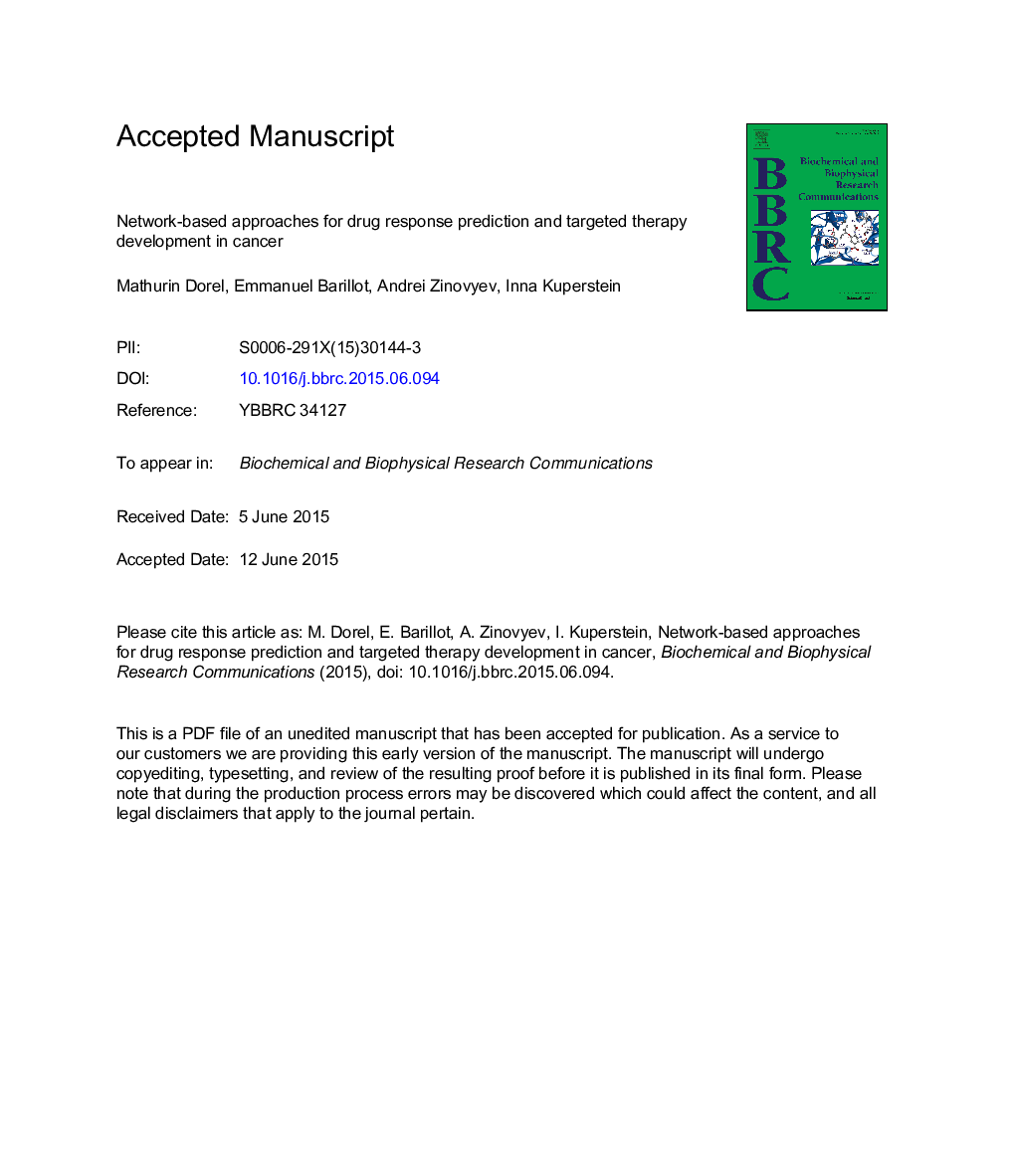| Article ID | Journal | Published Year | Pages | File Type |
|---|---|---|---|---|
| 10751234 | Biochemical and Biophysical Research Communications | 2015 | 21 Pages |
Abstract
Signaling pathways implicated in cancer create a complex network with numerous regulatory loops and redundant pathways. This complexity explains frequent failure of one-drug-one-target paradigm of treatment, resulting in drug resistance in patients. To overcome the robustness of cell signaling network, cancer treatment should be extended to a combination therapy approach. Integrating and analyzing patient high-throughput data together with the information about biological signaling machinery may help deciphering molecular patterns specific to each patient and finding the best combinations of candidates for therapeutic targeting. We review state of the art in the field of targeted cancer medicine from the computational systems biology perspective. We summarize major signaling network resources and describe their characteristics with respect to applicability for drug response prediction and intervention targets suggestion. Thus discuss methods for prediction of drug sensitivity and intervention combinations using signaling networks together with high-throughput data. Gradual integration of these approaches into clinical routine will improve prediction of response to standard treatments and adjustment of intervention schemes.
Keywords
Related Topics
Life Sciences
Biochemistry, Genetics and Molecular Biology
Biochemistry
Authors
Mathurin Dorel, Emmanuel Barillot, Andrei Zinovyev, Inna Kuperstein,
